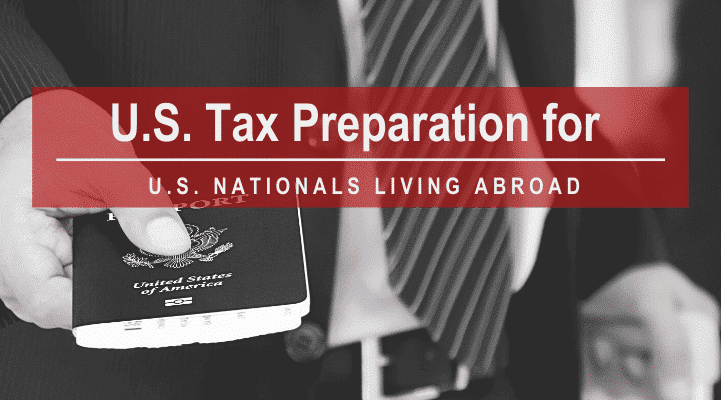The foreign tax credit and deduction. Taxes that you pay to a foreign country or to the United States on foreign-earned income can be claimed as either a credit or deduction. Usually, claiming the credit is a better option, keeping in mind that you can only claim the amount of U.S. tax that is proportionate to your foreign taxable income over your total worldwide taxable income.
If you are a U.S. Citizen working in a foreign country for the long-term the foreign- earned income exclusion may be a better alternative. It allows qualifying individuals to exclude from their gross income up to $ $107,600 in 2020 ($105,900 in 2019) of foreign earned income. You can also exclude certain non-employer-provided housing costs. The IRS considers the following when determining if a taxpayer qualifies for these deductions:
- the taxpayer’s intention,
- the length of stay in a foreign country
- the nature and duration of employment,
- the establishment of a home in the foreign country, and
- the nature, extent and reasons for temporary absences from the foreign home
Specifically, to benefit from the foreign-earned income exclusion you must be:
- A U.S. citizen who is a bona fide resident of a foreign country or countries for an uninterrupted period that includes an entire tax year,
- A U.S. resident alien who is a citizen or national of a country with which the United States has an income tax treaty in effect and who is a bona fide resident of a foreign country or countries for an uninterrupted period that includes an entire tax year, or
- A U.S. citizen or a U.S. resident alien who is physically present in a foreign country or countries for at least 330 full days during any period of 12 consecutive months.
You must provide appropriate documentation to substantiate eligibility for the foreign earned income and housing exclusion such as travel dates and the type of work you have done and the locations in which you have worked.
Another important point is that you cannot take both the foreign-earned income and housing exclusions as well as the foreign tax credit. In addition, if you decide to use the foreign earned income exclusion, you will not qualify for the earned income credit for that year.
How do you decide which is the better option, the foreign-earned income credit or deduction or the foreign housing exclusion? It may be a good idea to talk to a tax professional before you choose between the credit or exclusions described above.
Key factors in the decision include the tax rate of the country in which you are earning income, the length and certainty of your stay in a foreign country. If for example your foreign-earned income is taxed at a higher foreign income tax rate than your U.S. income, it would be better to claim the foreign tax credit.
However, if you revoke this election, you won’t be able to take it again for another five years unless the IRS grants you special permission. You must also be aware of the “stacking rule” which stipulates that foreign-earned income that is excluded from your gross income is still included when determining the applicable tax rate for U.S. citizens living abroad. This is to ensure that U.S. citizens working abroad still pay the same U.S. tax rates as those who are living and working domestically.

